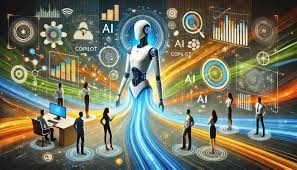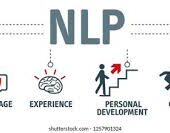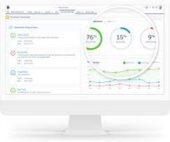Copilots and Agentic AI
Agentic AI vs. Copilots: Defining the Future of Generative AI Artificial Intelligence has rapidly evolved, progressing from simple automation to generative models, to copilots. But now, a new player—Agentic AI—has emerged, promising to redefine the AI landscape. Is Agentic AI the next logical step, or will it coexist alongside copilots, each serving distinct roles? Copilots and Agentic AI. Generative AI: Creativity with a Human Touch Since the launch of ChatGPT, generative AI has dominated tech priorities, offering businesses the ability to generate content—text, images, videos, and more—from pre-defined data. However, while revolutionary, generative AI still relies heavily on human input to guide its output, making it a powerful collaborator rather than an autonomous actor. Enter Agentic AI: Autonomy Redefined Agentic AI represents a leap forward, offering systems that possess autonomy and the ability to act independently to achieve pre-defined goals. Unlike generative AI copilots that respond to human prompts, Agentic AI makes decisions, plans actions, and learns from experience. Think of it as Siri or Alexa—enhanced with autonomy and learning capabilities. Gartner recently spotlighted Agentic AI as its top technology trend for 2025, predicting that by 2028, at least 15% of day-to-day work decisions will be made autonomously, up from virtually none today. Agentforce and the Third Wave of AI Salesforce’s “Agentforce,” unveiled at Dreamforce, is a prime example of Agentic AI’s potential. These autonomous agents are designed to augment employees by handling tasks across sales, service, marketing, and commerce. Salesforce CEO Mark Benioff described it as the “Third Wave of AI,” going beyond copilots to deliver intelligent agents deeply embedded into customer workflows. Salesforce aims to empower one billion AI agents by 2025, integrating Agentforce into every aspect of customer success. Benioff took a swipe at competitors’ bolt-on generative AI solutions, emphasizing that Agentforce is deeply embedded for maximum value. The Role of Copilots: Collaboration First While Agentic AI gains traction, copilots like Microsoft’s Copilot Studio and SAP’s Joule remain critical for businesses focused on intelligent augmentation. Copilots act as productivity boosters, working alongside humans to optimize processes, enhance creativity, and provide decision-making support. SAP’s Joule, for example, integrates seamlessly into existing systems to optimize operations while leaving strategic decision-making in human hands. This collaborative model aligns well with businesses prioritizing agility and human oversight. Agentic AI: Opportunities and Challenges Agentic AI’s autonomy offers significant potential for streamlining complex processes, reducing human intervention, and driving productivity. However, it also comes with risks. Eleanor Watson, AI ethics engineer at Singularity University, warns that Agentic AI systems require careful alignment of values and goals to avoid unintended consequences like dangerous shortcuts or boundary violations. In contrast, copilots retain human agency, making them particularly suited for creative and knowledge-based roles where human oversight remains essential. Copilots and Agentic AI The choice between Agentic AI and copilots hinges on an organization’s priorities and risk tolerance. For simpler, task-specific applications, copilots excel by providing assistance without removing human input. Agentic AI, on the other hand, shines in complex, multi-task scenarios where autonomy is key. Dom Couldwell, head of field engineering EMEA at DataStax, emphasizes the importance of understanding when to deploy each model. “Use a copilot for specific, focused tasks. Use Agentic AI for complex, goal-oriented processes involving multiple tasks. And leverage Retrieval Augmented Generation (RAG) in both to provide context to LLMs.” The Road Ahead: Coexistence or Dominance? As AI evolves, Agentic AI and copilots may coexist, serving complementary roles. Businesses seeking full automation and scalability may gravitate toward Agentic AI, while those prioritizing augmented intelligence and human collaboration will continue to rely on copilots. Ultimately, the future of AI will be defined not by one model overtaking the other, but by how well each aligns with the specific needs, goals, and challenges of the organizations adopting them. Like1 Related Posts Salesforce OEM AppExchange Expanding its reach beyond CRM, Salesforce.com has launched a new service called AppExchange OEM Edition, aimed at non-CRM service providers. Read more The Salesforce Story In Marc Benioff’s own words How did salesforce.com grow from a start up in a rented apartment into the world’s Read more Salesforce Jigsaw Salesforce.com, a prominent figure in cloud computing, has finalized a deal to acquire Jigsaw, a wiki-style business contact database, for Read more Service Cloud with AI-Driven Intelligence Salesforce Enhances Service Cloud with AI-Driven Intelligence Engine Data science and analytics are rapidly becoming standard features in enterprise applications, Read more







